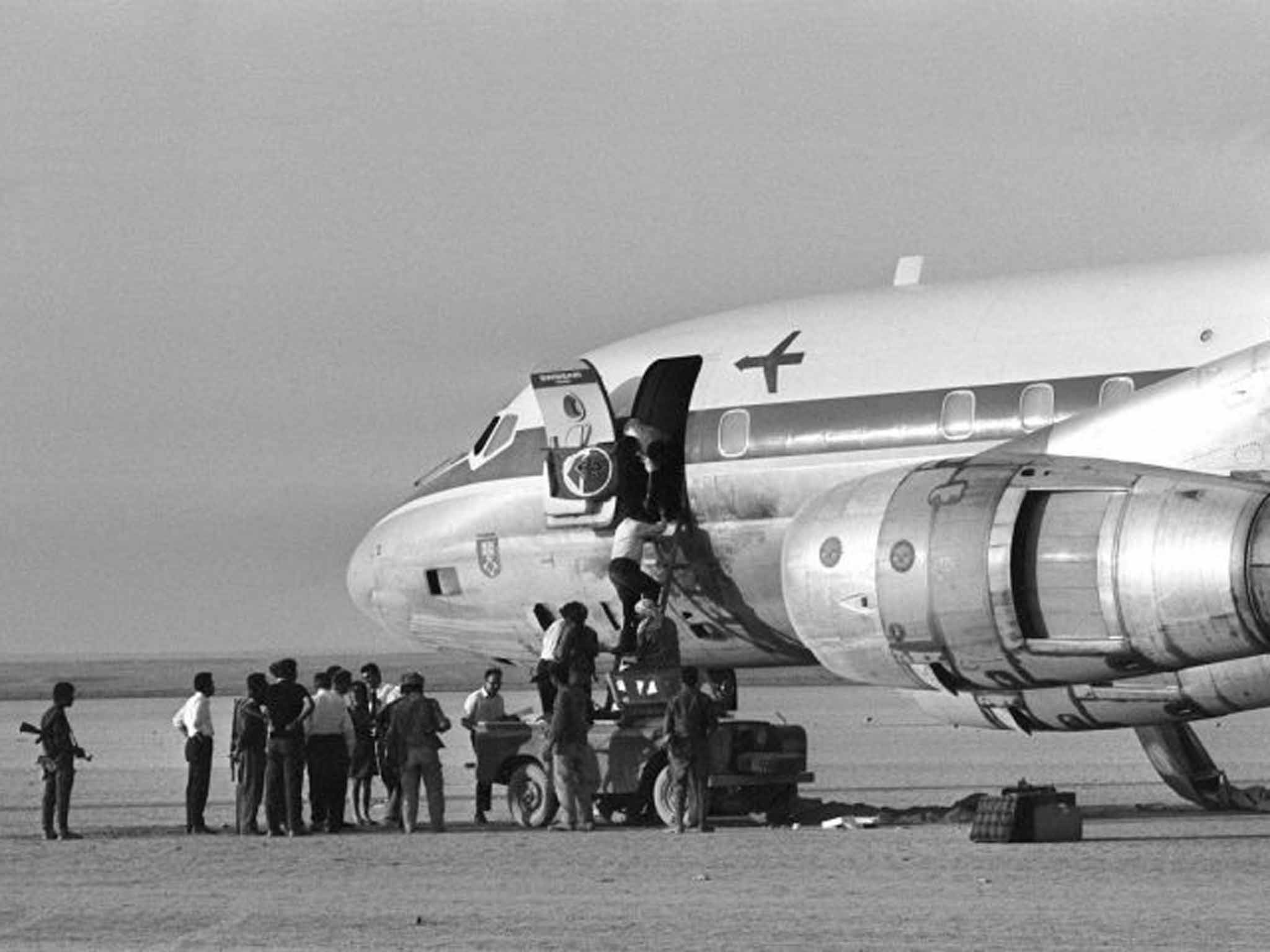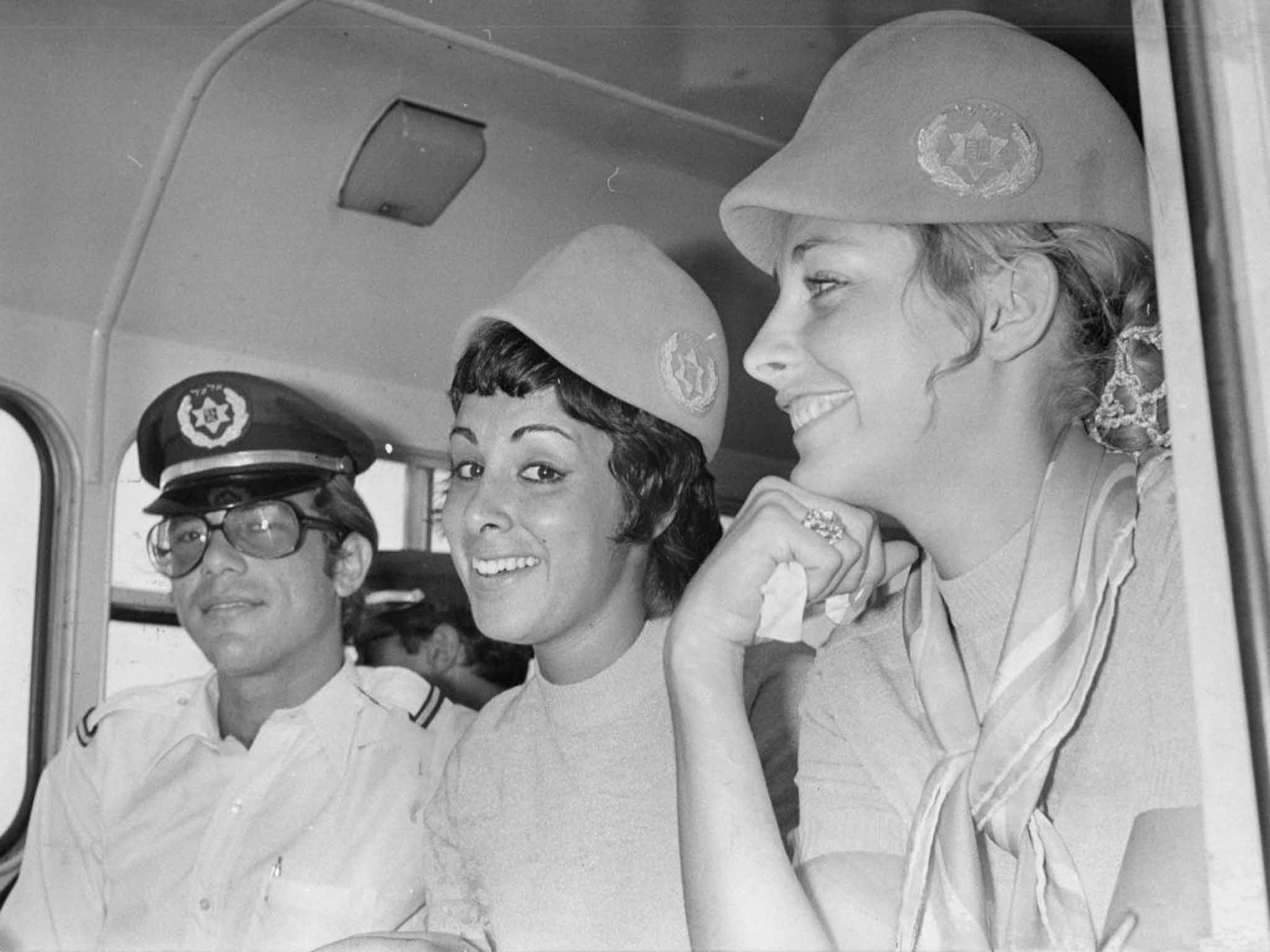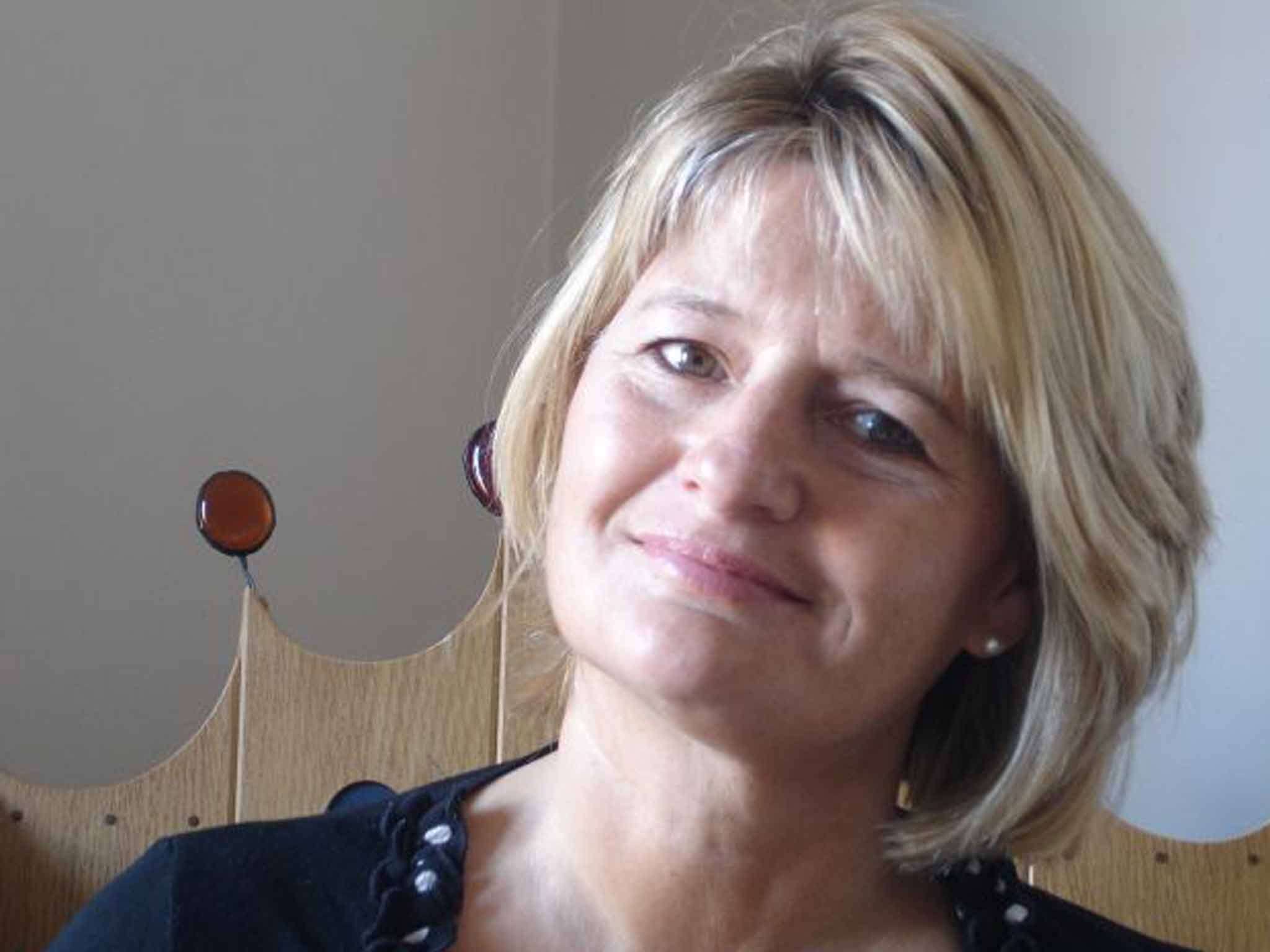Girl on a Plane: An exclusive extract of the novelisation inspired by the 1970 Palestinian fighters hijack
'I was a child on my own, in a hijack: scared, hungry and thirsty, and sleeping for three days on a plane wired with explosives'

Your support helps us to tell the story
From reproductive rights to climate change to Big Tech, The Independent is on the ground when the story is developing. Whether it's investigating the financials of Elon Musk's pro-Trump PAC or producing our latest documentary, 'The A Word', which shines a light on the American women fighting for reproductive rights, we know how important it is to parse out the facts from the messaging.
At such a critical moment in US history, we need reporters on the ground. Your donation allows us to keep sending journalists to speak to both sides of the story.
The Independent is trusted by Americans across the entire political spectrum. And unlike many other quality news outlets, we choose not to lock Americans out of our reporting and analysis with paywalls. We believe quality journalism should be available to everyone, paid for by those who can afford it.
Your support makes all the difference.The age of global terror started 45 years ago next week, when Palestinian fighters hijacked five planes and landed three in the Jordanian desert, aiming to swap the hostages for jailed colleagues. Then 15, Miriam Moss was among those held and has now written a 'novelisation' inspired by the experience.
Wednesday 9 September 1970
11.30am BOAC Flight 775, from Bahrain to London
The intercom crackles overhead: "Ladies and gentlemen, this is Captain Gregory speaking. I'm sorry to have to inform you that we've been hijacked by the Popular Front for the Liberation of Palestine." There's murmuring, then silence. Hijacked? Like those other planes. But one of them blew up. We're all going to die.
A deep Arab voice takes over. "Your captain says he is sorry! But we are not sorry! We are the PFLP. We are trying to free Palestine!" There's a pause. The captain returns, talking slowly. "Ladies and gentlemen, I hope you're all all right. I have been asked to tell you that we have a hijacker in the cockpit, as well as the one in the cabin. They're insisting we fly to Beirut to refuel, then to their Revolutionary Airstrip in the Jordanian desert." He pauses. "It's very important that we all stay calm and obey these people. So please stay in your seats. It'll take about an hour to get to Beirut. I'll keep you informed of developments, I promise, as soon as I know more."
And in the stillness, in the yawning, white silence, I feel a terrible calm. So this is what happens when you're going to die...
A Forces child, that's what they call me. It's all I've ever known: living in rented houses and moving every few years to a different country. When I was 11 my parents decided to send me to boarding school back in England. Now I travel out to see them in the holidays, when they can afford it. My dad's in the Army. And my mother is a primary school teacher. It's the last day of the summer holidays, and we're leaving Bahrain for ever because we're moving again. My two younger brothers are travelling back to school in a couple of days' time, and my parents will go at the end of the week. We won't be coming out to Bahrain again… "Ladies and gentlemen, boys and girls. This is Captain Gregory again. I've been asked by the two hijackers to tell you that there's another member of the PFLP, sitting in the aisle seat in Row 20 holding a black briefcase full of explosives." I hear gasps. People look round, trying to spot the hijacker. A bolt of panic shoots through me. I feel cold, sick. I feel the boy sitting next to me tense. He's called Tim, and he's about nine, the same age as my brother Sam. "Are you scared?" he asks, with the ghost of a breath. "Yes," I say. The older boy on my other side, David, looks at me, his face ashen. "We're trapped inside a huge metal bomb."
Wednesday 9 September 1970
16:45hrs Revolutionary Airstrip, Jordan
The plane drones on and on in the wrong direction. Down, down, closer and closer. We coast in mid-air, then... crunch! We're level but bumping, lurching and sliding, braking and slowing some more, taxiing in a storm of red sand. I lean forward and stare out of the window, waiting for the dust to disperse. It's another world. We career along, slowing little by little, and gradually shapes begin to appear though the billowing red clouds: the wheel of a Jeep, the muzzle of a gun, a scarved head. And as the sand thins, I see a row of Jeeps with machine guns mounted on them travelling alongside us at exactly the same speed we're moving. The Jeeps are covered in people, hanging off the sides, holding on to the canopy, sitting on the bonnet, standing at the back – all waving guns, laughing, cheering, men, women and teenagers, some in khaki, others in camouflage gear. I feel as if I'm in some kind of dream. A sense of uneasy relief sweeps through the cabin. What's next? What about the armed guerrillas outside?
A figure climbs aboard: a woman wearing khaki fatigues, black boots and a red-and-white checked scarf wound loosely around her head. She's very striking, with strong features, dark eyes and arched brows. She stands at the front, nods curtly at the captain, then stares out at us, shifting her gaze from face to face, taking her time. The conversation in the cabin peters out and the atmosphere changes, as if something new and more hostile has entered the plane.
Two new guards follow the woman in and stand on either side of her. One is heavy-shouldered with a bull-neck and rough complexion; the other is tall with wary deep-set eyes and an oversized jaw. Both wear immaculate fatigues and have sub-machine guns slung across their shoulders. They eject the captain and his two co-pilots from the cockpit. Then she starts speaking, slowly and deliberately, in perfect English with a faint Arab accent. "We have brought you here because we planned it. We have guns, bombs, hand grenades. We are strong." She pauses, to let her words sink in. "You, on the other hand, are helpless. Trapped." She starts pacing a little, pushing her head forward, emphasising each word. "We will live. We have water and food. You will be hungry, thirsty. We will live, and – if we choose – you will die." I feel a bolt of shock. Why is she doing this? None of the other hijackers have spoken like this. My mind whirls. I feel disbelief and panic. I feel sick.

"Excuse me." The captain stands up. The woman swings round. "What?" she spits. "We have children on board." "You?" she says. "You tell me about children?" In one fluid movement, she pulls the pistol from her belt, cocks it and points it at his head. "You tell me about children?" she shouts. "What about us? What about our children? What about them? The ones who died at the hands of the murdering invaders? Do they not count?" "Of course they count," the captain says quietly, his face white. "Silence!' she screams.
She lowers her gun and begins to speak again, her voice thick with hatred. "The murderers took our land and threw us on to the scrapheap of the world." I feel her seething disgust as she paces down the aisle towards the back of the plane. "And who cares? No one!" She turns and comes forward again. "So we have risen up. AND WE WILL BE HEARD!" she yells. "If your Prime Minister doesn't release our comrade Leila Khaled [a Palestinian hijacker, imprisoned the previous year] in London by midday on Saturday, you will ALL DIE. We will blow up the whole plane with you in it." She spins around at the front. "Or maybe," she adds, lowering her voice and leaning forward, "we will kill you all, one... by... one." Oh God. Oh God. She raises her head, gives us a triumphant look, turns on her heel and leaves the plane, followed by her two guards. There's a stunned silence, as if all the air on the plane has been sucked out.
Thursday 10 September 1970
14:00hrs Revolutionary Airstrip, Jordan
The captain says we all need to write to Ted Heath, the British Prime Minister, and the hijackers will send our messages to him. Apparently we have to be short and sweet. So I've put: Please release Leila Khaled, imprisoned in London. I want to come home alive. Anna, aged 15.
It's quiet, and in the lull I hear Tim's high-pitched voice talking excitedly to David at the back. I decide to get up and see what they're up to. David has his face squashed up against the porthole in the back door, looking out with one eye. "They're fixing what look like explosives to the wheels," he says. And sure enough, I can just see the edges of the bundles, tied with black tape, bunched around the back wheels.
Friday 11 September 1970
11:30hrs Revolutionary Airstrip, Jordan
It's mid-morning of the last full day for Ted Heath in London to decide our fate. What's he thinking? What's he going to do? Did our telegrams make any difference? No one here seems to want to talk about it any more, which makes me feel that we must be completely doomed. We're just a plane full of helpless hostages with our heads in the sand. Hungry, thirsty, filthy, sweaty hostages.
Jamal, a young hijacker who joined us at the airstrip, leans against the end cupboard, opposite the galley. He's staring down the aisle. I can't get my head round it. He seems so normal, quite nice even, and yet he's actually prepared to kill us. I want to understand what makes someone like him do something like this. I really do. He comes over to me. "Hello, Anna. Can I tell you something?" he says quietly. I turn to face him. "You may choose not to listen, or not to believe me," he says, his voice deep and reasonable, "but, please, just for a moment?"
He sits down by me – it feels too close – and his voice is low and urgent. "My brother and I grew up on a farm in orange groves. It had been in our family for hundreds of years. But the Israelis wanted the land." He takes a deep breath. "When I was 11, we came home from school down the long straight track that led to the farmhouse. Our mother, then our father, ran out of the house. There was a burst of gunfire. They fell, face down. Dead. I dragged my brother into the long grass and we hid till it was dark. Then we left. We never went back. Couldn't." He turns towards me. "Tell me – where would you be if that had happened to you?" He looks right at me. "Might you be here too?"
Saturday 12 September 1970
06:00hrs Revolutionary Airstrip, Jordan
When I wake again, it's that soft time after dawn. Threads of pink clouds lie in lines above the horizon. In the trenches around the plane, old campfires glow red-grey. A long line of camels treads rhythmically on a distant ridge, each step throwing up a puff of sand. I watch one of the hijackers pass a piece of paper to the captain, who sits on the arm of a nearby seat to read it. Have they released Leila Khaled? Is it good news? Are we going home? I can't see the captain's expression. He beckons to the other crew members. They move to huddle around the captain. What are they deciding? Who is going to be shot first? My stomach lurches. I feel so sick. I never really believed this moment would come. But it has.
I lean across the aisle. "Something's happening." David and Tim crouch up on their seats. I open my table and press my forehead on to it. My whole body is in a revolt of fear. The captain stands up. "Good morning, everyone," the captain says. "A moment, please. I have something important to tell you." Saliva rushes into my mouth. I am going to be sick. I scrabble to find the bag in the seat pocket.
"It's good news." The captain smiles. "We're going home!" His words are greeted with a great uproar of clapping and whooping. I slump back in my seat, dropping the sick bag. I look over at the boys, stunned. Tim is jumping up and down with his arms in the air. He leaps on David, hugging him. Then he scrambles over, picks up my limp hand, turns it over and, grinning, quickly kisses the palm. I stare at him, speechless, a great sob gripping me. He puts his arms back around me again. "We're going to be OK, Anna. We're going to be OK." I nod into his chest and I don't want to pull away.
When the clamour finally dies down, the captain, smiling broadly, continues. "I expect you'd like to know the details. The British Government has negotiated with the Palestinians. We don't know everything yet, but I have a letter here from the chief British negotiator, which I believe to be genuine, otherwise I wouldn't raise your hopes. He says that the plan is for us to leave the plane at about 2pm today. Minibuses will be sent from Amman to take us back into the city, where we'll be put up overnight. Initially, the guerrillas refused to accept the decision made by their main commando leadership, the central committee, but in the end an agreement of sorts was reached. We are to be released on humanitarian grounds. The King of Jordan has arranged for a Jordanian Airlines plane to fly us to Cyprus tomorrow morning, where we'll transfer to an RAF flight home."
Everything is different. The relief inside the plane seems to change the air we breathe. If I didn't know it to be impossible, I'd think the air con was back on. But then, as the minutes pass, we become more muted. Because now we have hope, and with that comes a new fear – the fear of what we might lose. We're so close to actual freedom, but now anything, anything at all, could go wrong. I don't seem able to calm the turmoil in my exhausted mind. I feel strung out, balancing between relief, elation and a quiet dread that someone or something might jeopardise this fragile chance of freedom. What if someone on one of the other planes. . .? But I mustn't think about that. What matters now is getting off this plane, getting as far away as possible from the huge bomb we're sitting in. I pack my things into my bag very slowly and, as I do, my anxiety and confusion grow.
Six dirty white, bullet-scarred minibuses draw up alongside the plane, and everyone is ordered to leave the aircraft. I look at my place, my row of three chairs, my little window, my overhead locker and the fold-down trays. I look at the floor where I've slept. This has been my place, where I've been, where I've lived through all this. Where I've hidden, slept, dreamed, laughed, cried.
It pulls me back. Suddenly I don't want to leave it. If I do, it will be forever.

This is an edited extract from 'Girl on a Plane' (Andersen Press), a novel inspired by Miriam Moss's own experience of hijack
Join our commenting forum
Join thought-provoking conversations, follow other Independent readers and see their replies
Comments